Weekend
Introduction
Roland and Corrin Durand are married, yet both have secret lovers to whom they confess their deepest desires, which mainly consist of bumping off their other half, but only when they manage to wangle a vast inheritance out of Corrin's mother, since her father is very close to death. Whether Corrin's mother will survive for much longer afterwards is a moot point.
They are not very nice people.
Setting off for Oinville, they are immediately caught in a bizarre, completely surreal traffic jam and turn off the road into an even more bizarre and completely surreal village.
From then on, the journey is plagued by one disaster after another and they encounter random characters from history and literature, who all have various philosophies on life (as do many of the 'normal' citizens along the way), and who are quite happy to lecture anyone who is within earshot.
'Car'-nage continues.
The couple finally arrive at Corrin's parents' house, but her father is already dead and her mother refuses to share the wealth. Her mother is therefore killed.
On the return journey, Roland and Corrin, along with some English tourists, are captured by hippy cannibals who shoot the more aged members of their prisoners and take the rest back to camp. Things turn from bad to worse, especially for Roland.
Audio
Not at all bad for the age of the film, and has probably been cleaned up a little. Some crackles in the sound aren't too obtrusive, and there is some distortion during the louder sequences, but again, this isn't enought o spoil anything.
Video
A very clear PAL image, which shows up the fantastic cinematography in a very favourable light. Colours are vivid, with light and dark scenes (of which there are few) are well contrasted.
Extras
Two quite enlightening interviews from 2004 (around 20 minutes each) with Mike Figgis, who is a great fan of Godard films, and Raoul Coutard, the Director of Photography for Weekend.
Coutard reveals that Godard insisted on using some of the fastest film available at the time, and so much was shot through polarising filters. This would explain the incredible colours and light we experience throughout the film.
He also mentions what an antagonistic sod Godard was liable to be at the time, and was quite willing to humiliate the cast to get the shots he wanted (the example given being the scene where Corrin has to lie down in the middle of the road spreading her legs to get a vehicle to stop). The film producers were also constantly in the firing line, and he had a hatred for Sunday drivers, which explains the frequent scenes of carnage on the road.
Figgis is a little more cerebral, but very honest. He admits that many of Godard's films have long sections which bore him rigid, but knows that there is always going to be something scintillating later on. The phrase he uses to describe Godard's films is 'refreshingly indefinable', which I think says everything that needs to be said.
Conclusion
I'm ashamed to say that, despite knowing of Jean-Luc Godard and his output, this is the first film of his I have actually seen, but will definitely be exploring more after experiencing this very peculiar offering.
Weekend has so many levels to it that it's difficult to know where, or even how to start a review.
On the surface, it's a very simple tale in that a nasty couple get their just desserts (although one actually becomes the main course...hoho), but almost every scene is so perfectly imagined and framed, that you sometimes forget what is actually going on in the greater scheme of things.
Perhaps Godard most likely couldn't care anyway, as one of the first (of many) still images to invade the film describes it as "A film found on a dump" , but in French of course (see above). It's as if there's such a huge disdain for French society as it was then, that even a story about the bourgeois lifestyle which goes horribly wrong isn't really worth the celluloid on which it's captured, and the fact that there was capital used from a major studio to finance the venture obviously grated. It was around this time that Godard declared that he was a Marxist-Leninist and was no longer going to accept money from any big studios to make films. He may have been accused of many things since, but at that time he certainly wasn't a hypocrite.
It was the following year which saw the beginning of the student riots in Paris and beyond. Many of the scenes in this film are prescient of almost everything which occurred in real-life just a few months after the first screening, yet there's still a huge amount of comedy, whether subtle or laugh-out-loud explicit, to be found amongst the violence, rape, didactic communist diatribes and completely irrelevant scenarios to keep your interest throughout.
It's obvious that the years haven't necessarily been kind to the ideas enshrined in this film, but the passion with which it was made, and the love Godard seems to have for humanity stripped of all its pretentiousness (seen most clearly in the long-held close up shots of people who rarely speak for themselves) is never in doubt, and so the director's cynicism to which I eluded earlier is almost certainly tongue-in-cheek.
You can see what Mike Figgis means by 'refreshingly indefinable' but by watching Weekend you also notice so many familiar, almost clichéd, shots and ideas - all of which you know from films made in the subsequent 40 or so years, that Godard, and this film in particular, has obviously had a huge influence on many other directors since.
There's probably a genius at work here....all I need to do now is work out why I came to that conclusion, but I expect my head to hurt.
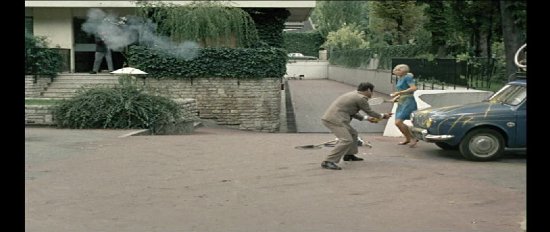
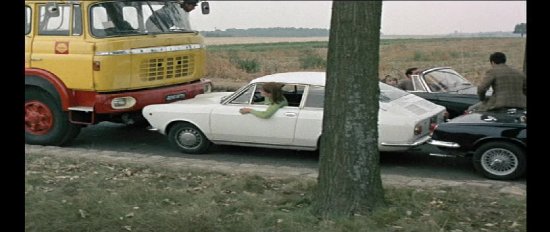
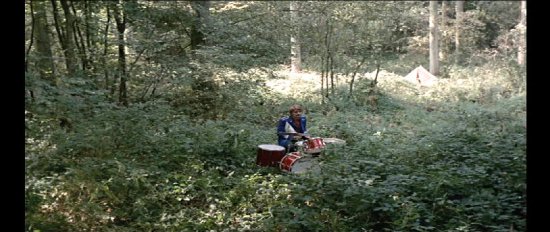
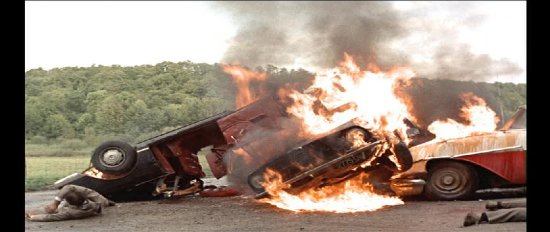
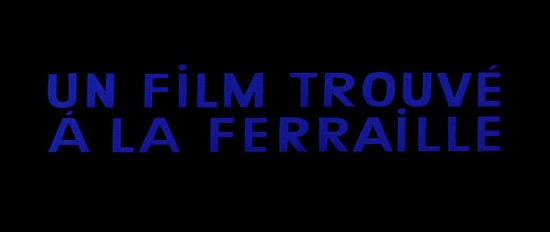
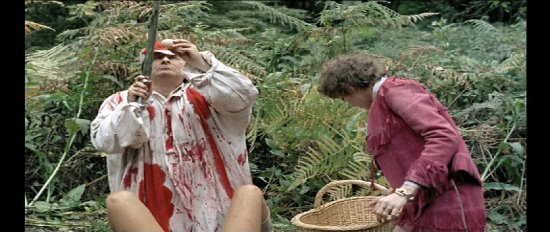
Your Opinions and Comments
The review initially went to three pages-worth, but that was mostly me waxing lyrical about almost every scene and various running gags I thought I noticed.